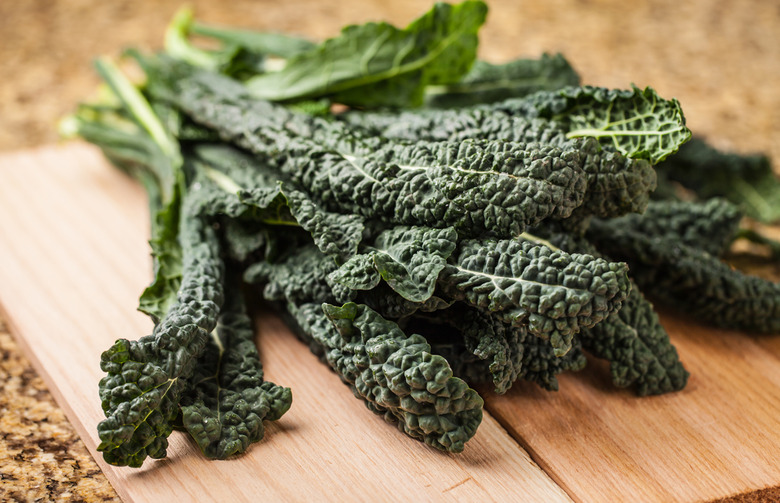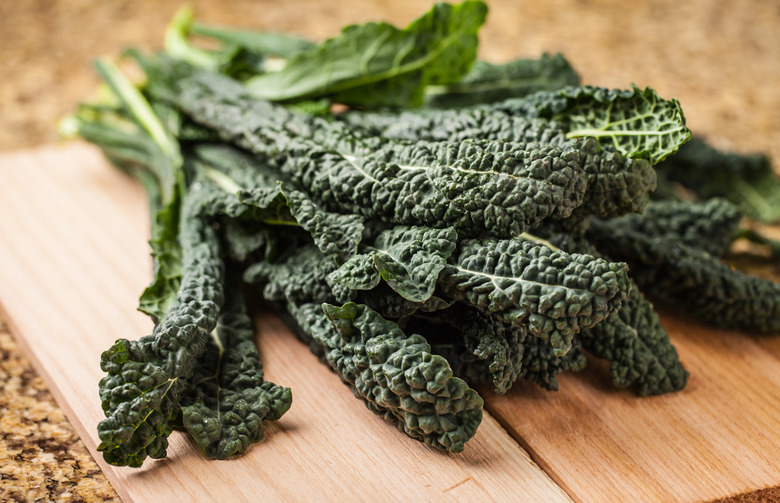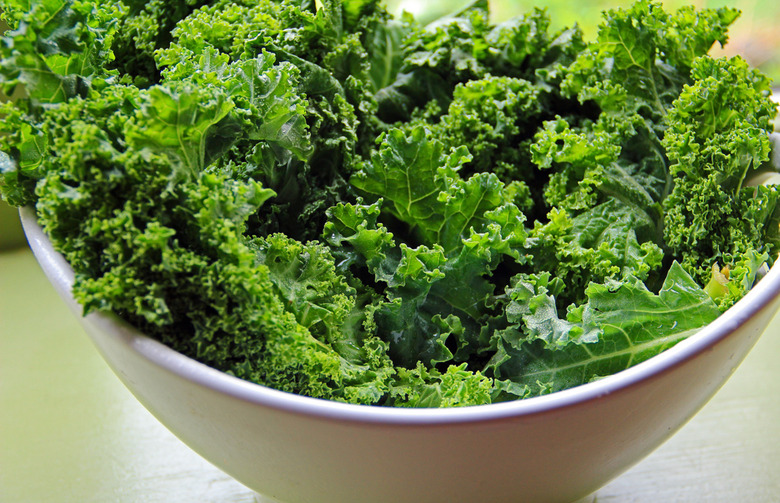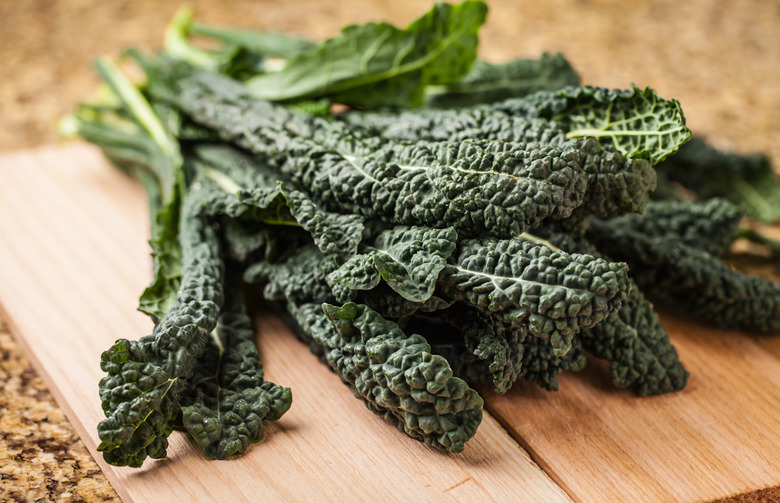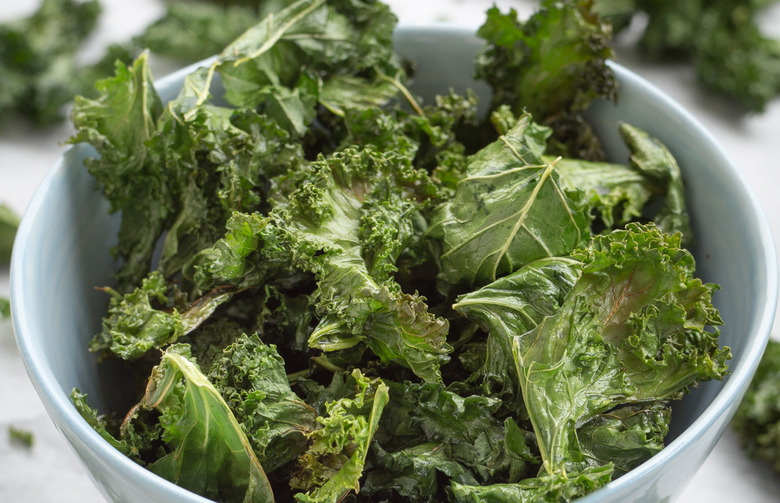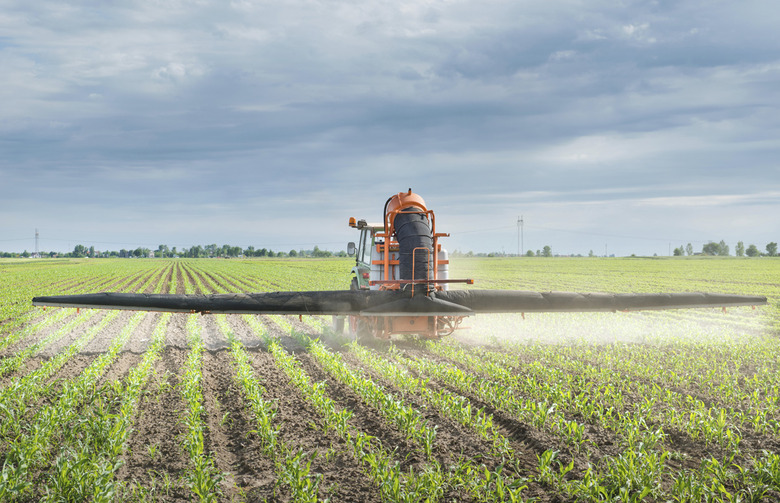13 Things You Didn't Know About Kale
13 Things You Didn’t Know About Kale
Kale is one of the most popular names on the list of healthy foods and it has been deemed a superfood based on its nutrient profile. Due to high levels of vitamins, minerals, and phytonutrients, this green vegetable should be included in your diet.
Antioxidant Powerhouse
Kale is rich in sulfur, which helps produce glutathione, one of the most important antioxidants in the body. Kale also contains lutein and zeaxanthin, which function as antioxidants in the body and improve eyesight. "This pair of antioxidants combines to increase the amount of pigment in your macula, which means protection from the sun and a lower risk of macular degeneration," said Melissa Walshe, a writer for Guiding Stars, a nutritional guidance program.
Better to Eat with Something Else
Kale has enough benefits on its own but your body can benefit even more if you pair your kale with other healthy foods. Healthy fats, such as olive oil, avocado, or almond butter can combine with kale to make fat-soluble carotenoids more available to the body.
Cancer-Prevention Benefits
An article that was published in the journal Cancer Prevention Research noted that kale contains high levels of cancer-preventative properties, such as glucosinolate phytonutrients. This could protect against the development of tumors as well as block enzymes associated with cancer, according to the Cancer Letters journal.
Easily Adaptable
The best part about kale is that you can incorporate it into a breakfast omelette, a salad for lunch, alongside your fish or chicken for dinner, and you can have kale chips for a snack.
Healthy Eyes
"Kale is truly a nutritional powerhouse for the eyes because it contains high amounts of lutein and zeaxanthin, antioxidants that are found naturally in the eyes and need to be replenished regularly for good eye-health," said Johanna M. Seddon, MD, ScM, Tufts Medical Center, Boston, Massachusetts and co-author of Eat Right For Your Sight presented by the American Macular Degeneration Foundation. "As a rule, the darker the green, the higher the amount of lutein, and raw kale has the highest content of lutein of any vegetable."
Healthy Bones
Milk isn't the only thing that contains calcium for strong bones. According to the National Osteoporosis Foundation, kale contains calcium, which aids in bone loss prevention. You will get the same amount of calcium from one cup of kale as you will from one cup of milk.
Healthy Brain
When it comes to a healthy brain, kale is packed with numerous flavonoids and iron, which reduces the risk of stroke and helps carry oxygen to all of the cells in the body, according to LiveScience. The University of Maryland Medical Center said that the omega-3 fatty acids found in kale can improve brain memory, function, and overall performance.
High Fiber Content
One cup of kale contains about 10 percent of your daily fiber needs, which will not only keep you fuller longer, but it can help manage diabetes. The Journal of the American Board of Family Medicine found that adequate fiber intake can reduce the levels of blood glucose.
More Vitamin A Than Any Other Green
Above spinach, arugula, and mixed greens, kale has more vitamin A, which is important for immune function and healthy vision. Kale happens to have 133 percent of your daily requirement, so eat up!
More Vitamin C Than an Orange
If you dislike citrus fruits, such as oranges and grapefruits, get your dose of vitamin C from kale. While oranges have 113 percent of your daily requirement, kale has 134 percent. At just 67 grams, compared to an orange at 131 grams, kale has more than twice the vitamin C.
Part of the ‘Dirty Dozen’
Kale happens to be on the Environmental Working Group's list of the Dirty Dozen most contaminated foods from pesticides. What does this mean? Watch your kale intake by choosing organic over conventionally produced kale and always washing it thoroughly.
There Are Different Varieties of Kale
Depending on which type of kale you choose, you will receive different benefits. Consider trying everything from lacianto kale, which features blue-green leaves that are sweeter than the curly type, to Redbor kale, which is a dark red color that is also used as a decoration.
Weight Management
Kale is low-calorie and contains tons of fiber, keeping you fuller longer. Kale also contains magnesium, which helps your body with digestion and managing stress.
